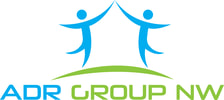|
Cole was hired in early 2021. Cole felt satisfied with the work he was asked to do and felt like he was valued as a contributing team member with his division. His organization is now expecting employees to work in the office at least 2 days per week. Cole was at first hesitant about working in the office but now that he has started to get into a routine, he is finding that he enjoys face time with other co-workers including taking lunch breaks with them. However, most of his division team members have been resisting coming into the office. He is feeling disconnected from them and feels like they are shunning him because he is following the rules about coming into the office. He has mentioned this to his direct supervisor, but she seems to be aligned with his other team members. He is not sure who to talk to and how to address what is becoming an uncomfortable situation. He feels like it is escalating because his teammates “forget” to invite him to meetings and has noticed that his supervisor is treating him differently. He is considering looking for another job. What would you advise Cole to do next?
Cole’s organization is going through a cultural change. Although Cole was hired during a period where organizations were adapting to keep business moving, another change was inevitable and that is where Cole’s organization now is. Cole’s organization has established expectations but seems to be lacking a process to address resistance. And Cole is unable to manage the conflict he is experiencing on his own. He has not been offered the tools that an integrated conflict management system provides to give direction and resolution when conflict is experienced. Integrated Conflict Management Systems (ICMS) is a systemic focus on relationship management and early resolution of conflict at the lowest (and earliest) possible level. ICMS can be considered a component of risk management and organizational development. Going back to Cole’s organization and looking at it through an ICMS lens: when leaders began to consider making a change to a hybrid work environment, how were employees engaged in making the decision? What options were offered? Were employees encouraged to collaborate as a team to design a structure to meet the expectations? When conflict arose, how was it managed? What creates and triggers conflict? Are supervisors trained in conflict management skills? How does the organizations mission and vision align with interpersonal conflict management and autonomy? When leadership recognizes that conflict is beginning to impact the bottom line (i.e., quiet quitting, sabotage, customer service, EEO complaints), the first step is to assess organizational readiness for creating an ICMS. I have yet to find an organization that wasn’t ready for an integrated conflict management process. The challenge generally begins at the top. This includes building the support and commitment necessary to truly embrace systemic change and create the process – a process that is fluid. One only need watch an episode of Succession or The Office to understand how conflict can destroy relationships, create chaos, and bring an organization to failure. However, an organizational culture that recognizes that conflict is both inevitable and an opportunity, will succeed where others fail. And employees like Cole can be retained as they will feel supported and know the options available to resolve conflicts. ADR Group NW offers a complementary initial 30 minute ICMS assessment. Schedule one today!
0 Comments
Your comment will be posted after it is approved.
Leave a Reply. |
Sunny Sassaman
Sharing experiences and insights of reflection and conflict management techniques. Archives
July 2024
Categories |

 RSS Feed
RSS Feed